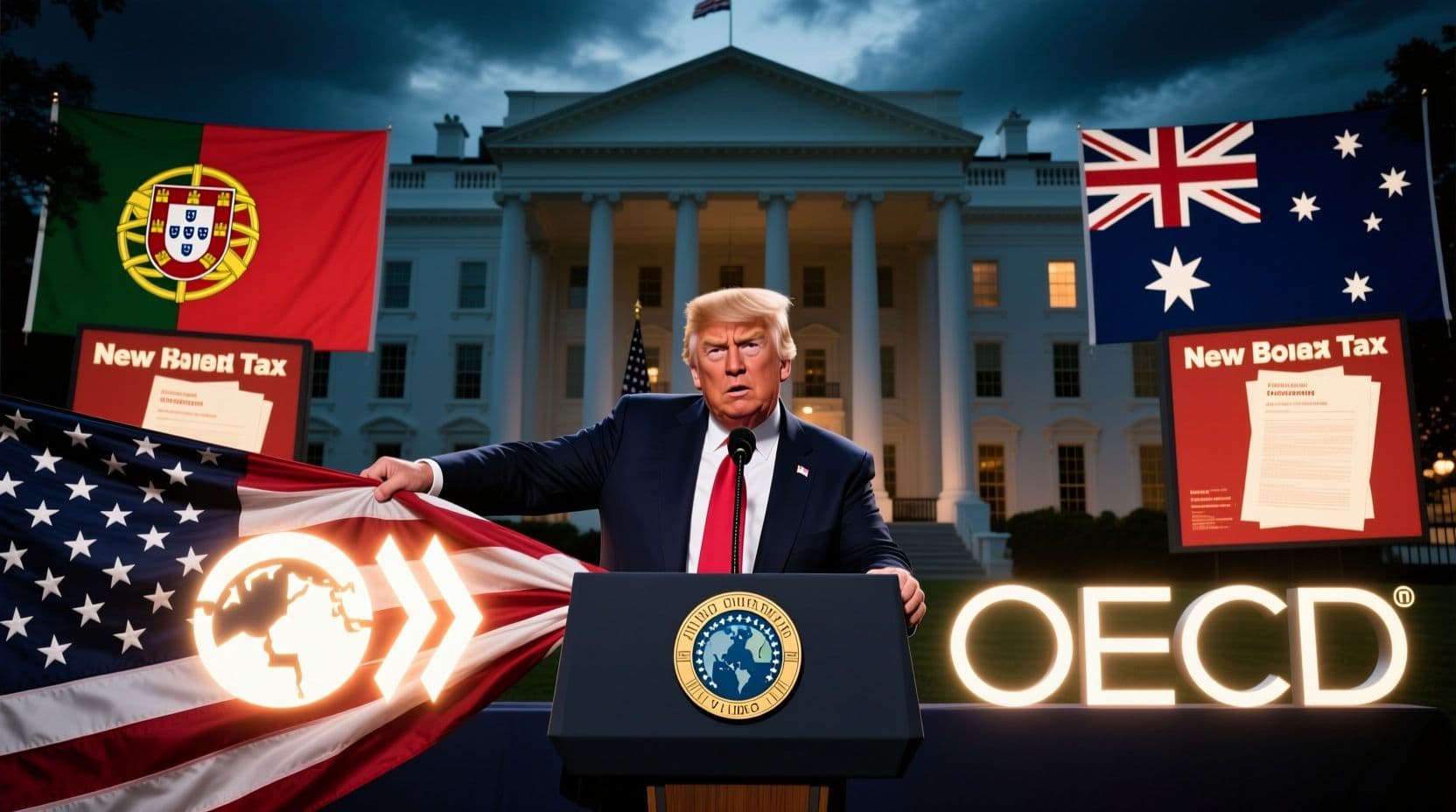Uncle Sam Bows Out
The Big Picture: Newly sworn-in President Donald Trump just slammed the brakes on nearly four years of painstaking OECD diplomacy. With a stroke of the pen, an executive order yanked U.S. support for the two-pillar global tax accord that 140-plus countries pledged to implement. Why it matters: without Washington, the deal’s 15% minimum tax and profit-reallocation rules risk splintering into a patchwork of unilateral digital taxes.
The Details: The order declares that “The Global Tax Deal has no force or effect in the United States,” according to MSN. The administration argues the pact treats American companies "unfairly" and threatens “retaliatory international tax regimes.” The OECD blueprint would have required multinationals with €750 million-plus revenue to pay a 15% effective rate wherever they operate and to shift a slice of profits to market countries.
The reaction was swift. European officials warned they may revive or expand national digital services taxes first shelved in anticipation of the OECD rules, while tax advisers cautioned clients to brace for double taxation cross-fire. For readers interested in how comprehensive reforms can address such challenges, our recent updates on Nigerian Tax Laws 2025 offer additional perspective.
Why It Matters: Tax pros say the U.S. exit “creates immediate uncertainty for cross-border planning” and could embolden other skeptics to stall domestic ratification. For a primer on adapting to rapidly evolving tax regimes. For now, companies face a two-track world: jurisdictions forging ahead with top-up taxes and those hitting pause.
Around the Tax World
• Portugal clarifies treaty perks for partnerships. A binding ruling on the Portugal,Germany pact lets Portuguese payers apply reduced rates to German tax-transparent partnerships, even when the ultimate owner sits in Luxembourg, easing long-standing opacity headaches (International Tax Review).
• Canberra dangles a 10% minerals credit. Australia’s Treasury launched consultations on a refundable credit for processing graphite, manganese and nickel,critical inputs for EV batteries (Law360).
• ATO maps “White” and “Green” zones for software royalties. Draft PCG 2025/D4 tells businesses when cross-border software payments won’t trigger royalty withholding audits, following the high-profile PepsiCo case (International Tax Review).
• ESG now baked into EU tax risk. Tougher environmental and social rules, including the Carbon Border Adjustment Mechanism, could cost laggards big,but two omnibus packages aim to cut red tape by €6.3 billion a year (Bloomberg Law News).
Tax Stat of the Day
€6.3 billion,annual compliance savings the EU expects from its latest ESG “Clean Industrial Deal” simplification packages.
Looking Ahead
All eyes now turn to Brussels and Paris, where finance ministers meet next week to decide whether to push ahead with the minimum tax without U.S. backing,or pivot to fresh digital levies. Meanwhile, domestic regulatory shifts, such as those outlined in the Nigeria Tax Administration Act, 2025, illustrate similar challenges.
